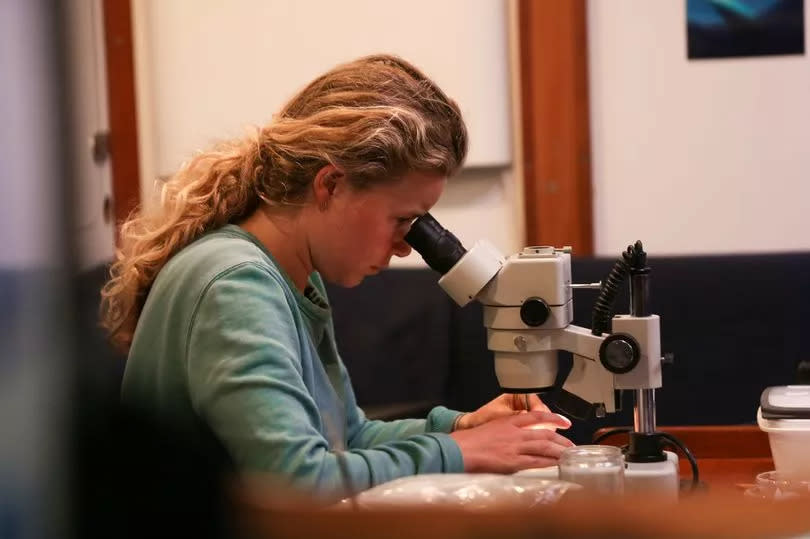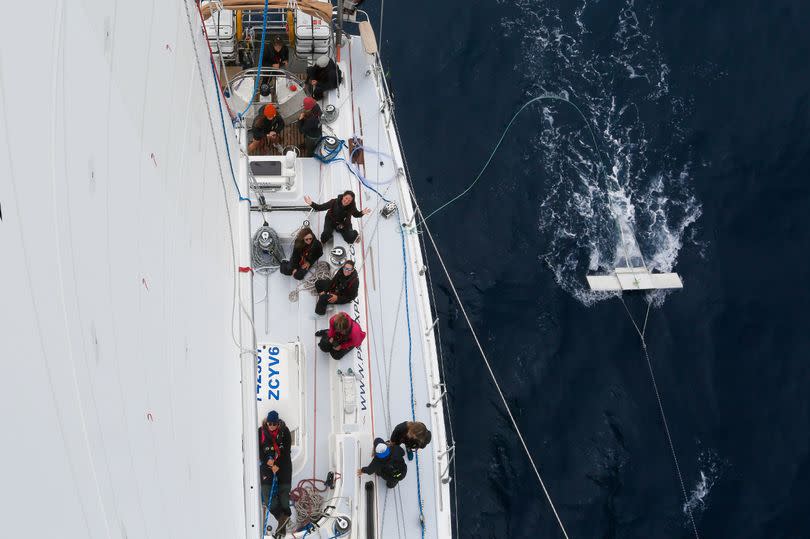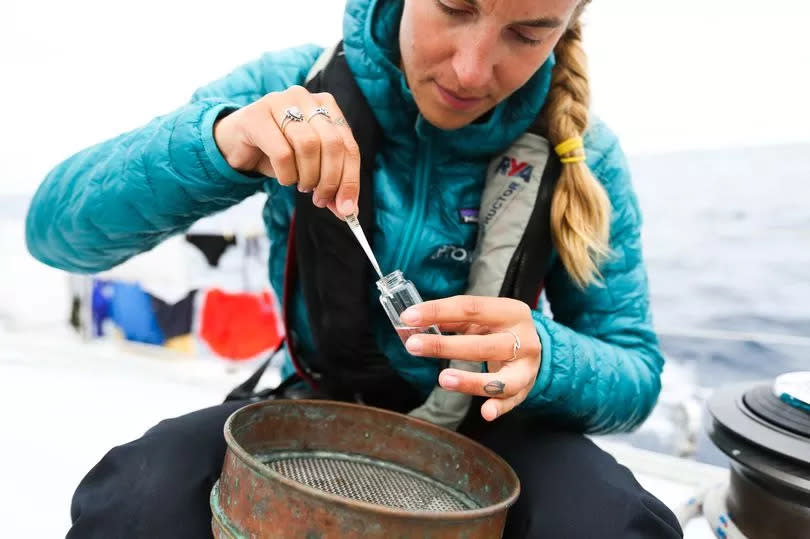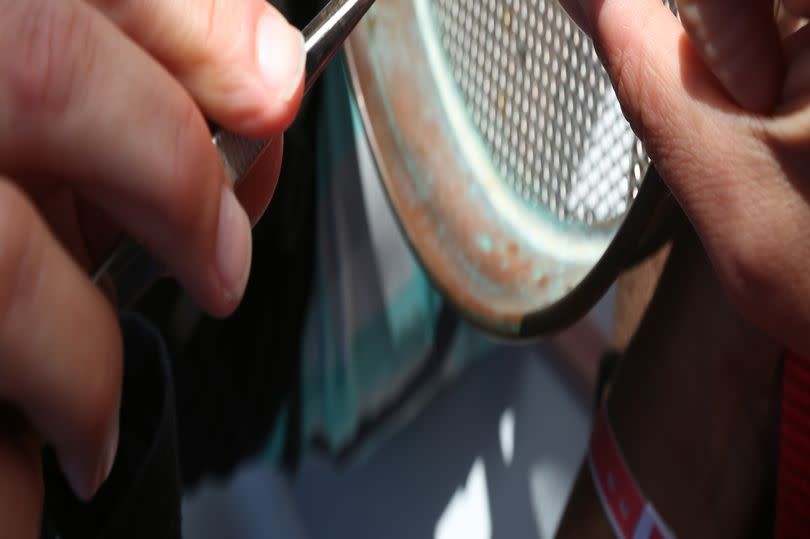Cornwall scientist says we face 'global crisis' as too much plastic is in the sea

Mention the Great Pacific Garbage Patch and it will conjure up images of a gigantic thick soup of plastic debris the size of a continent floating around the ocean. Emily Duncan is a Cornwall-based environmental scientist who was part of an all-female crew who sailed to the Great Pacific Garbage Patch as part of an expedition to study it and its impact on our oceans.
For three weeks the scientist at Exeter University's Penryn Campus was part of 14 crew onboard the ‘eXXpedition North Pacific’. Emily said sailing to and through the notorious global pollution hotspot, was an opportunity to see the scale of the problem for herself and to study marine plastic pollution on a grand scale.
She said: "Many people think the garbage patch is a huge island of plastic however it just looks like the open ocean, until you start to do sampling trawls and see the amount of small plastic particles present in the surface waters. I felt grateful to have the opportunity to be part of the expedition, and to be able to visit this rarely accessed area but it was also shocking to see the level of pollution there.
Read next: Cornwall beach gets 'Brown Flag' for being one of the dirtiest in England
Read next: New Scilly ferry delayed because there has been too much rain
"I think the worst thing we saw was the ghost gear, that the satellite tracker was attached to in the film, which was an accumulation of nets, ropes and other plastic materials. In my PhD I had done some research on the threats to marine turtles from ghost gear but I had never witnessed seeing one that big in the ocean."
Among her discoveries during the three-week journey, Emily discovered sea critters living in the middle of the Pacific Ocean that should never be there but had hitched a ride on plastic.
She said: "Seeing the tiny Columbus crabs existing out in such a remote part of the ocean was cool. Sadly we found them in association with the plastic in our samples."

The tiny crabs, known as Planes minutus, tend to live in the Atlantic Ocean, the Mediterranean Sea and the Indian Ocean and have even been recorded on the Cornish coast. The first published record was at Falmouth in 1845 by William Pennington Cocks with the latest recording occurring in 2015.
Emily, who was the head of science on the expedition, added: "I loved being on the boat, especially the feeling of remoteness that came from being so far from land. Of course there was challenging times. There was worse weather than normal and therefore the boat was heeling a lot so we were living on a constant angle and offshore from Canada it was very cold.

"Plastic pollution is much more in the public consciousness now and innovations are being produced to try to reduce it, however I still think there is a lot of work still which relates to a wider issue of consumerism, and we value materials such as plastics. For example, single-use plastics are still a big issue, where we use a material that is designed to last forever one time and then discard it.
"I felt very inspired by the other women on the expedition who were all from different sectors. However, it was quite overwhelming to think about the scale of the issue when I was witnessing it in one of the most remote parts of the world. It was extremely inspiring to be as an early career researcher to be able to view the problem and keep motivation towards both understanding the issue of plastic pollution but also create solutions."

EXXpedition North Pacific took place in 2018 and covered some 3,000 miles, with the aim to "make the unseen, seen". It has since been the subject of a film, called X Trillion, which premiered in May this year.
Documentary director, Eleanor Church, said: "We were a crew of women with different skills, goals and motivations, brought together to witness and record the true extent of the plastic pollution crisis - with a focus on micro plastics and their toxic impact on female bodies in particular. We all emerged transformed by the experience and are committed to telling the story of what we witnessed and working to find solutions.
"The film is about this global crisis, but more than that it highlights the crucial role women play in helping to change systems and find solutions to the big problems facing humanity."

EXXpedition North Pacific was the 10th eXXpedition mission. It set out for answers to questions like: Where is the plastic coming from? What does it mean for our natural world and human health? And what can be done to solve it?
British skipper and ocean advocate Emily Penn said: "We know that there is no silver bullet to solve the plastic problem. Our expeditions help people to understand the true challenge of ocean plastic pollution, so they can use their skills to solve it from sea to source.
"This voyage turned these incredible women into ambassadors for change, with the power to help transform our future. It’s amazing to see the impact they’ve achieved since."

Emily Duncan, who is a researcher in the field of microplastics, said the expedition made her realise the extent of the plastic pollution problem, not just for sea turtles which she had studied in particular, but for all marine life.
She said: "I had just finished my PhD when I started and no one was really researching it. We didn’t even realise it was a problem in the sea turtle community. And now it’s kind of exponential. Plastic has been introduced so quickly that we call it an ecological trap."
Since taking part in the project, Emily has joined other expeditions around the world to further study the impact of plastic on ecosystems. She said: "In 2019 I was a researcher on National Geographic’s Sea to Source expedition in which we travelled the length of the river Ganges through Bangladesh and India studying the abundance, impacts and potential solutions to plastic pollution.
"Currently I am working on a capacity-building project with a local NGO on the island of Príncipe, in West Africa. Within this project I am providing training on monitoring plastic pollution and its potential impacts from marine turtles as well as developing a plastic re-use product business hub for women."
The film is being shown at the Poly in Falmouth on Saturday June 15. For more information and tickets visit https://thepoly.org/whats-on/event/3055/x-trillion-pg

 Yahoo News
Yahoo News 
